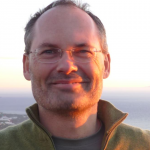This talk explores what procedural semantics can do for the twin notions of structure and unity. Procedural semantics construes linguistic meaning as a procedure that delineates which objects of which type operate on which other objects of which type so as to yield which yet other objects of which type. I conceive of a multi-part structure as an interlocking system of objects. The two main sources of inspiration are Frege’s notion of Sinn and procedural semantics as known from computer science, where it contrasts with denotational semantics. The contrast, in broad terms, is the contrast between an intensional and an extensional conception of meaning. My working hypothesis is that predication holds the key to the unity of the fundamental category of atomic propositions in which a monadic property is predicated of an individual, as expressed by “Pluto is a planet” or “Five is odd”. Furthermore, I model predication is an instance of the procedure of functional application; predication is emphatically not a relation. The respective meaning of those two sentences is a procedure that prescribes how to obtain a property and an individual and apply the former to the latter so as to obtain a truth-value. (The truth-value obtained in the empirical example will be indexed to worlds and times.) A noteworthy departure from Frege is that I do not embrace unsaturated entities. His saturation metaphor means simply, in my theory, that certain entities are typed in such a way as to hook up as function and argument and yield a third entity beyond both of them as value. In cases like “Pluto is heavier than Mars” or “Five is larger than zero”, the unifier is still the procedure of functional application. But this procedure does not extend to all cases. The procedure of functional abstraction is called for as a different kind of unifier to unify different sorts of entities. For instance, while the innermost structure of the proposition that Pluto is a planet is the procedure of application, the outermost structure is the procedure of abstraction in order to obtain an empirical truth-condition from a truth-value. The general metaphysical picture that emerges is this. A rich structure such as a proposition is a case of procedures within procedures, structures within structures, unities within unities. The talk will show how this procedural approach avoids the two classical pitfalls of underdetermining structure as a mere list or sequence and adding on unifiers endlessly. The solutions will be framed within Tichý’s neo-Fregean Transparent Intensional Logic.
Philosophy Seminar Series
Date: Wednesday, 23 Sep 2015
Time: 2pm – 5pm
Venue: AS3 #05-23
Speaker: Bjørn Jespersen, University of Barcelona
Moderator: Dr. Qu Hsueh Ming
About the Speaker:
 Bjørn Jespersen is currently affiliated with the LOGOS Research Group in Logic, Language and Cognition at the University of Barcelona as a Marie Curie Fellow funded by a European Commission grant. Before that he held research and teaching positions at Delft University of Technology, the Czech Academy of Sciences, and Leiden University.
Bjørn Jespersen is currently affiliated with the LOGOS Research Group in Logic, Language and Cognition at the University of Barcelona as a Marie Curie Fellow funded by a European Commission grant. Before that he held research and teaching positions at Delft University of Technology, the Czech Academy of Sciences, and Leiden University.
He obtained his PhD at the Masaryk University in the Czech Republic on a thesis devoted to reference and attitudes in Transparent Intensional Logic. He originally studied philosophy at the University of Aarhus in his native country of Denmark.
He is a co-author of the award-winning book Procedural Semantics for Hyperintensional Logic (Springer, 2010) and has published in excess of fifty papers and book chapters in, for instance, Philosophical Studies, Synthese, Synthese Library, Studia Logica, Journal of Philosophical Logic, and most recently in Thought. He has co-edited a special section of Synthese containing papers on hyperintensionality, and will be co-editing a special issue of Synthese together with Manuel García-Carpintero containing papers on propositional unity, some of which were presented at the recent LOGOS conference on this topic.
His current project is devoted to the unity of structured, fine-grained propositions. He has published a paper on recent work devoted to this topic in Philosophy Compass. His two latest projects were on quantifying-in and modifiers. His general interest is philosophical logic and philosophy of language.
The two presentations that Dr Jespersen is giving at Singapore National University have previously been given at UC Irvine, UNAM, and University of Stockholm.